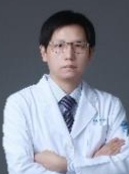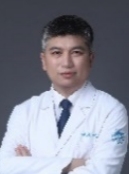Ying Tong
Director, Gamma Knife Center
Dr. Tong proficient in minimally invasive surgical treatment for neurological tumors and cerebrovascular disease, and Gamma Knife Treatment for Intracranial Lesions.

The Gamma Knife Fellowship Program at the First Affiliated Hospital, Zhejiang University School of Medicine, provides a unique and specialized environment for outstanding candidates to pursue advanced training in the application of Gamma Knife radiosurgery for CNS diseases.
This program is designed to enhance participants’ expertise in the diagnosis, planning, and execution of Gamma Knife treatments for intracranial lesions, with mentorship from experienced faculty. As trainees progress, their responsibilities grow in alignment with their experience, capability, and performance, enabling them to become highly skilled in the multidisciplinary management of complex conditions.
Beyond technical training, the program reflects a deep commitment to patient-centered care, embodying a culture that prioritizes the needs of patients while fostering a collaborative mission to provide hope and healing.
Every aspect of the program is tailored to guide participants in medical research and patient care, equipping them with the clinical and research tools essential for a successful academic career in this transformative field.
1. One-on-One Mentorship: Hands-on guidance in Gamma Knife treatment planning and execution.
2. Case Diversity: Exposure to a wide range of cases, including intracranial tumors, vascular malformations, and functional disorders (e.g. trigeminal neuralgia).
3. Multidisciplinary Team (MDT) Participation: Weekly MDT discussions to enhance interdisciplinary clinical decision-making.
4. Research Opportunities: Guidance to engage in clinical research and produce academic publications.
5. Gradual Autonomy: Opportunities to progressively take on independent responsibilities in treatment planning and implementation.
The program aims to equip participants with a comprehensive understanding of the theoretical foundations and practical skills of Gamma Knife radiosurgery, while fostering multidisciplinary clinical decision-making capabilities to manage complex intracranial and head and neck conditions. Participants will gain proficiency in creating, optimizing, and executing treatment plans, alongside developing independent critical thinking skills essential for advancing clinical and research careers in the field of radiosurgery.
The program provides a full-time, 2-week to 6-month training experience. In special circumstances, arrangements can be made for other lengths of training depending on your needs and interests.
• Fellows: Completed residency training in radiation oncology, neurosurgery, or related fields with clinical experience.
• Residents: Completed residency training in specialties like neurosurgery or oncology and seeking advanced training in Gamma Knife radiosurgery.
• Students:
1. Must be a final-year medical student when you are scheduled to participate in the rotation. This means all your core / required clerkship rotations are complete at the time of the clinical elective.
2. Medical School Approval - Letter of good standing from the dean's office of your medical school indicating you are in the final year with your expected graduation date, in good academic standing and meet all requirements to complete an elective for academic credit.
Focus Areas & Subspecialties:
1. Metastatic Brain Tumors: Neoadjuvant Gamma Knife treatment for large volume brain metastasis; hypofractional or staged Gamma Knife treatment for multiple brain metastasis.
2. Primary Intracranial Tumors: Small to medium-sized or postoperative residual benign (e.g. vestibular schwannoma) and malignant (e.g., glioblastoma) tumors.
3. Functional Disorders: Trigeminal neuralgia, epilepsy.
4. Cerebrovascular Diseases: Arteriovenous malformations, cavernous malformations.
Skills:
1. Precision Techniques: Imaging fusion, target delineation, and dose optimization.
2. Dosimetry & Quality Control: Treatment planning and delivery system operations.
3. Technical Proficiency: Device operation, troubleshooting, and radiation safety.
Monday
1st Week: Introduction & welcome, program overview and objectives, department introduction
Weekly: MDT conferences, complicated case study
Weekly: Mentor one-on-one training:
-Topics:
1. Clinical genomics
2. Radiation oncology
3. Metastatic brain tumors
Tuesday
Weekly: Outpatient observation, academic lecture, basic Gamma knife skills training
Biweekly: Research training:
-Major themes:
1. Risk assessment
2. Clinical case observation
Wednesday
Weekly: Clinical rounds, Neuro-Surgery observation, case-based discussion, teaching rounds
Biweekly: Simulated Gamma-knife surgery training
Weekly: Lectures:
-Topics:
1. Cerebrovascular disease and Gamma knife
2. Multidisciplinary management of Gamma knife
Thursday
Weekly: Simulated Gamma-knife surgery training
1. Technical skill development
2. One-on-one mentoring with faculty
Biweekly: Gamma knife surgery hands-on
Friday
Weekly: Journal club, clinical rounds, clinical skills training, special task training,
Last Week: Wrap-Up & reflection, participant presentations or discussion of key takeaways, feedback session
After each rotation, each faculty member evaluates each fellow according to core competencies of patient care, medical knowledge, practice-based learning and improvement, interpersonal and communication skills, professionalism, and system-based practice. Faculty members meet with fellows individually for verbal feedback and evaluation. For gamma knife planning, technical competence is evaluated through specifically designed evaluation forms, a simulator laboratory, and through a semiannual skills assessment program. Monthly, an aggregate evaluation of a fellow’s clinical progress is conducted through a clinical competency faculty committee.

Director, Gamma Knife Center
Dr. Tong proficient in minimally invasive surgical treatment for neurological tumors and cerebrovascular disease, and Gamma Knife Treatment for Intracranial Lesions.

Dr. Xu's research focuses on the diagnosis and Gamma Knife treatment of brain metastases.

Dr. Ye's research direction: Neoadjuvant Gamma Knife treatment for brain metastases.
The program is free of charge.